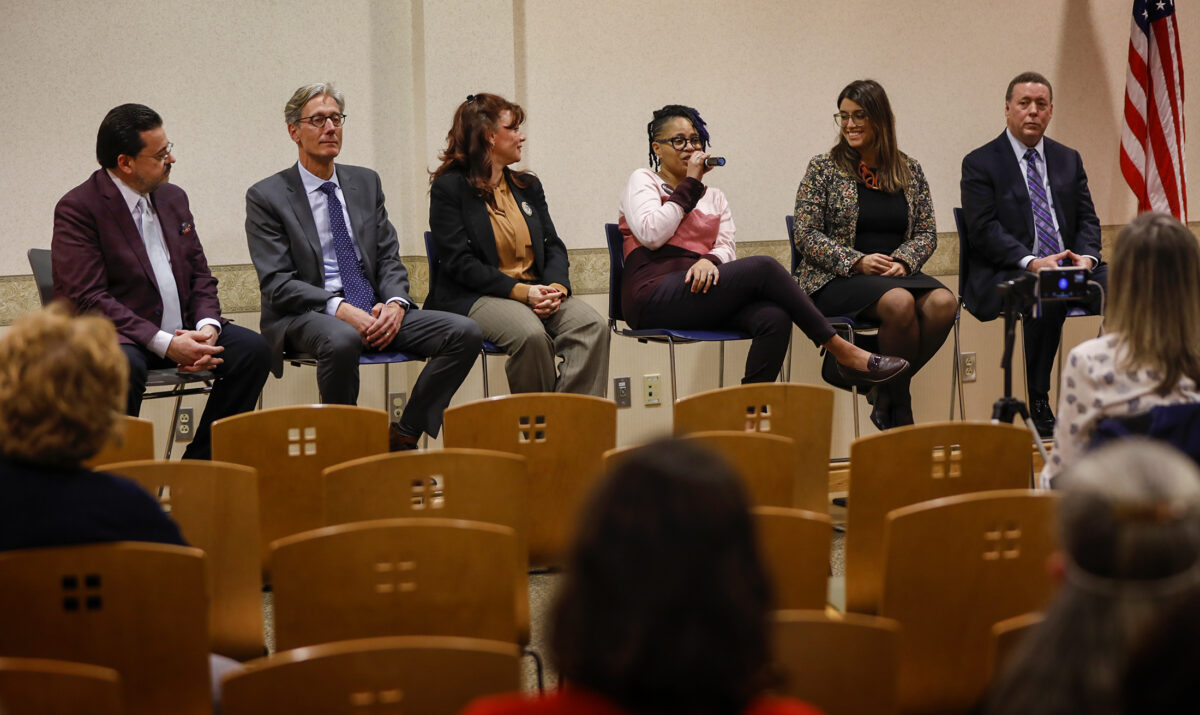The next Allegheny County executive was likely onstage Wednesday evening at the Hampton Community Center, where six Democratic candidates gathered for the first of several forums to discuss their stances on the key issues before Pennsylvania’s second-largest county.
The stakes are high when voters cast their ballots May 16, given that the executive can play a major role in setting the county government’s agenda on issues such as air quality, property taxes and the county jail; proposes the county’s $1 billion budget; and fills seats on boards and commissions. The current county executive is Rich Fitzgerald, a term-limited Democrat who will complete his third and final term at the end of this year.
Candidate stances varied across different topics, but all pledged to roll up their sleeves and get things done for county residents. The forum was moderated by Sean Meloy, a local activist who ran unsuccessfully last year for the Democratic nomination for the 17th Congressional District.
Six Democrats have entered the race: County Councilor Liv Bennett; Dave Fawcett, an attorney and former county councilor; state Rep. Sara Innamorato; Pittsburgh city Controller Michael Lamb; Erin McClelland, a contracted project manager at the county human services department; and county Treasurer John Weinstein. Weinstein arrived about 45 minutes after the event began due to a family medical emergency.
One of the most essential parts of the county executive position is to set the annual budget, in consultation with County Council, and the next executive might find he or she is hemmed in by an aging property assessment system. The county’s property assessments haven’t been fully updated since 2012, which critics say creates vastly different tax bills.
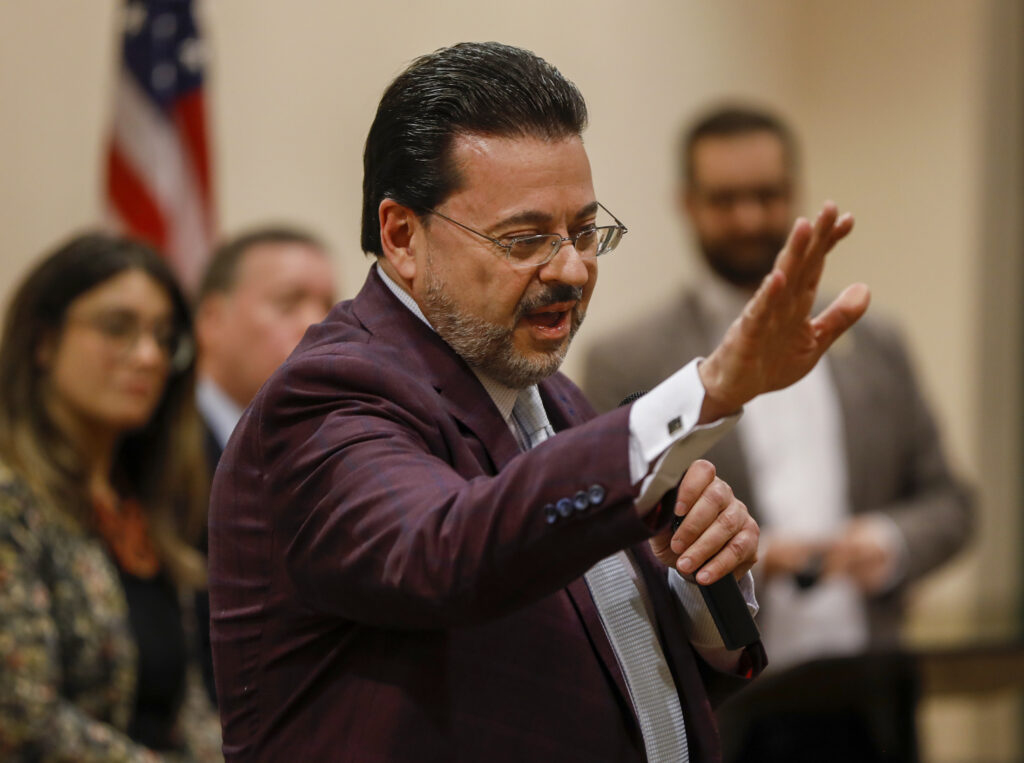
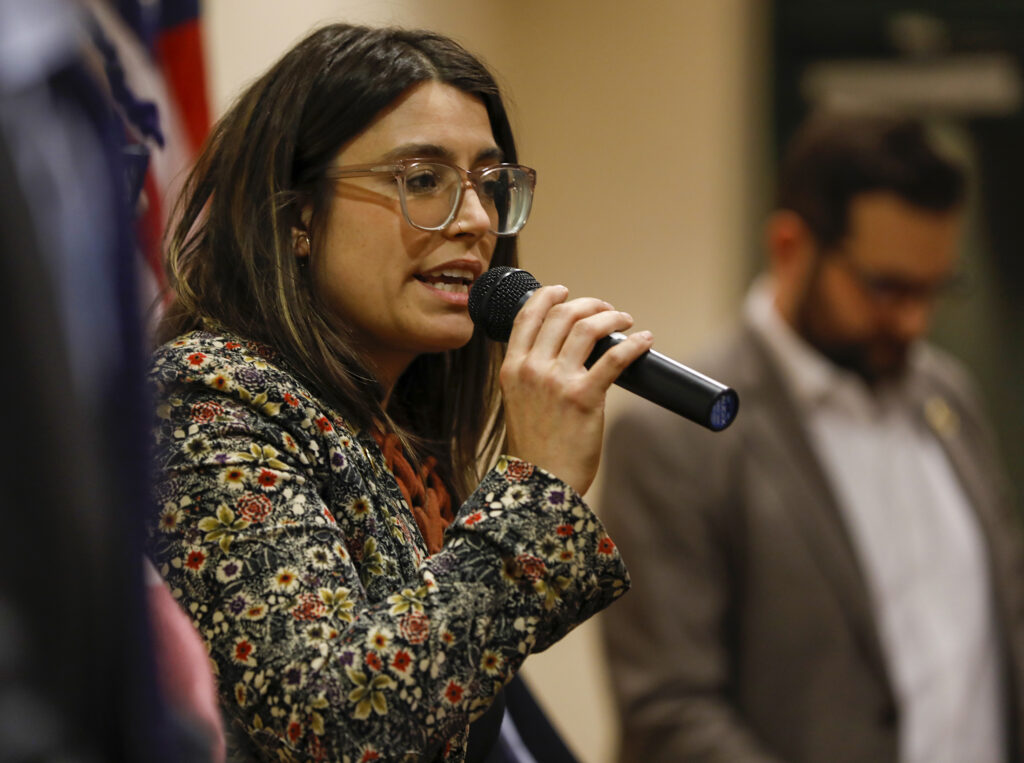
Weinstein, who has served as county tax collector since the turn of the century, said fixing the system is a top priority for him.
“People should have trust, 100% trust, in the assessment system,” said Weinstein, noting that the county is currently in court over a lawsuit related to property assessments. “This is definitely not working, and it’s broken.”
Innamorato said creating a “fair and equitable” property assessment system is also a priority for her.
How to best utilize tax dollars in providing services to the more than 1.2 million residents who live in the county was a subject of lively debate.
Fawcett said he would push for an expansion of county government and create a new department focused on enforcing laws that guard the region’s air quality and police the fracking industry.
“We have laws on the books that prevent the kind of pollution we’re all worried about, but we need better enforcement, we need more people,” he said. “It sends a signal — yeah, we’re actually going to enforce the law and do something about it.”
McClelland, who currently works with the county government, said the next executive must first rebuild staff morale before tackling large initiatives.
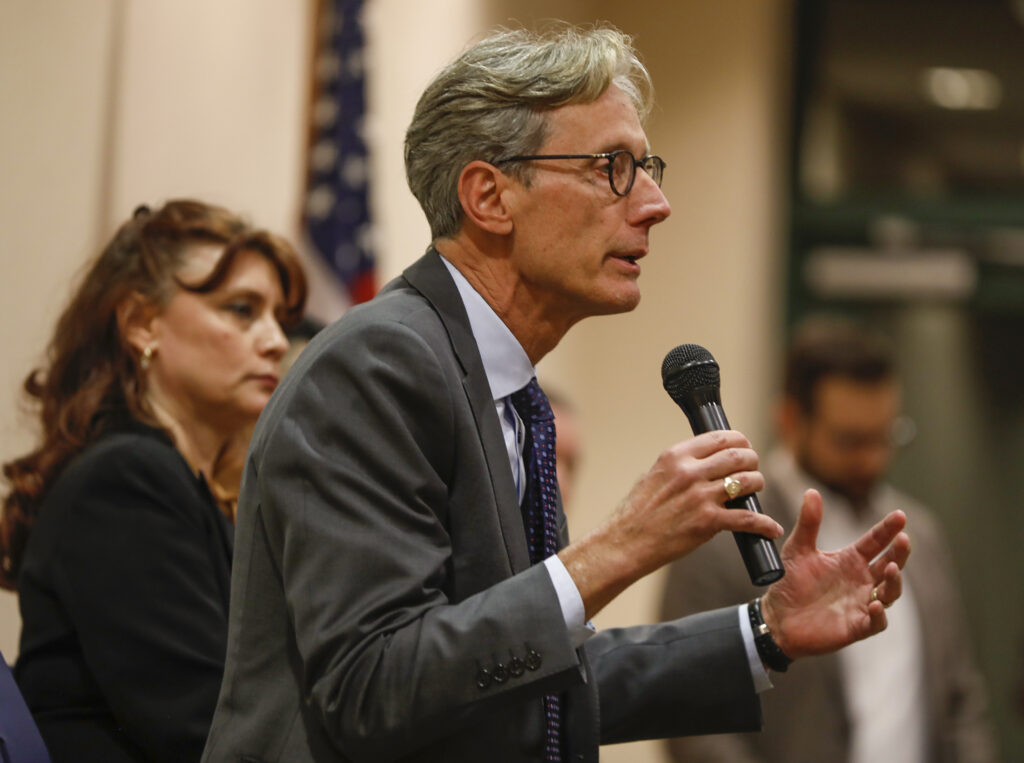
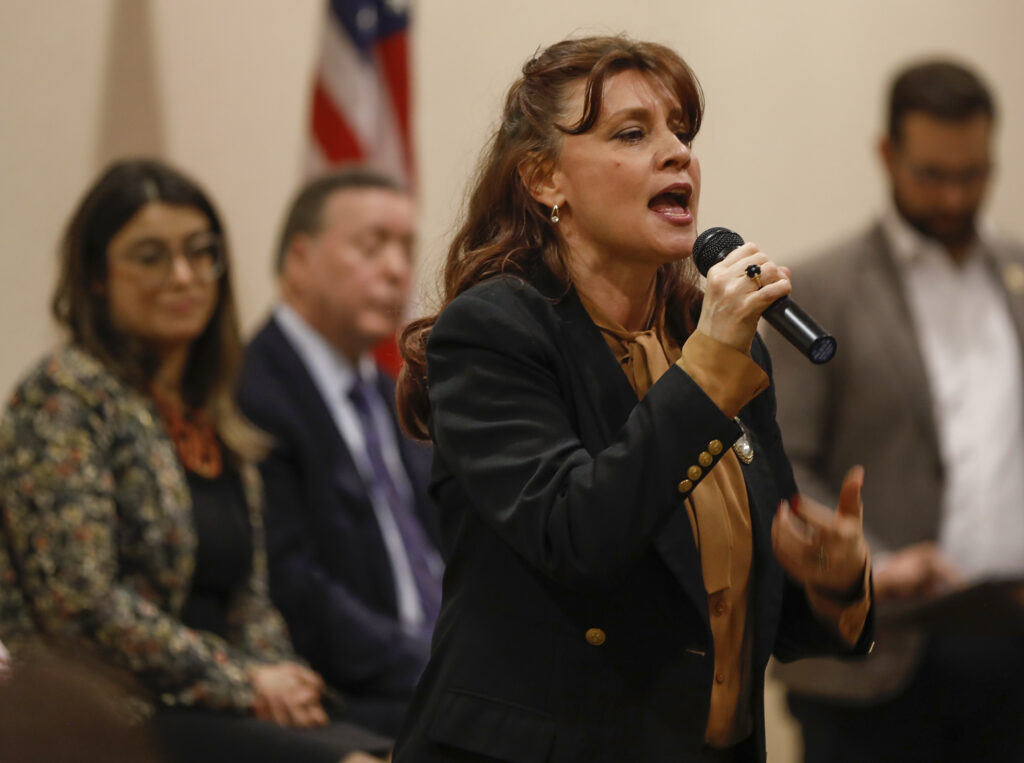
“You have a workforce that is completely compromised,” she said. “If you want to do air quality, it takes a worker to go do that. We don’t have the workers, unless somebody running for county exec is going to start climbing up smokestacks.”
Lamb, the city of Pittsburgh’s fiscal watchdog, said the county needs to “get smarter about working together” with the 130 municipalities that form the county. He would seek to unite communities through a new Office of Municipal Assistance, and he linked the county’s fragmentation to issues ranging from paying for infrastructure to ensuring small fire and police departments are trained and paid properly.
“This idea of all these little towns and townships around working on their own, we’ve got to rethink that,” he said.
Weinstein argued that he could best run and reform the county government given his extensive service in elected office.
“I’m the only candidate that could step into the office of chief executive tomorrow and run and operate county government,” he said. “I want to … put all of that knowledge that I have gathered for all these years to work immediately as the county executive. I don’t need any on-the-job training.”
Candidates also discussed their approaches to growing the regional economy and ensuring a good quality of life.
Innamorato said she is focused on making sure there is sufficient affordable housing for all residents, citing her personal experience with a lack of stable housing after her father’s death from opioid addiction. She noted that she has already taken action on this issue, helping to get the state’s Whole-Home Repair Program passed as part of budget negotiations last summer.
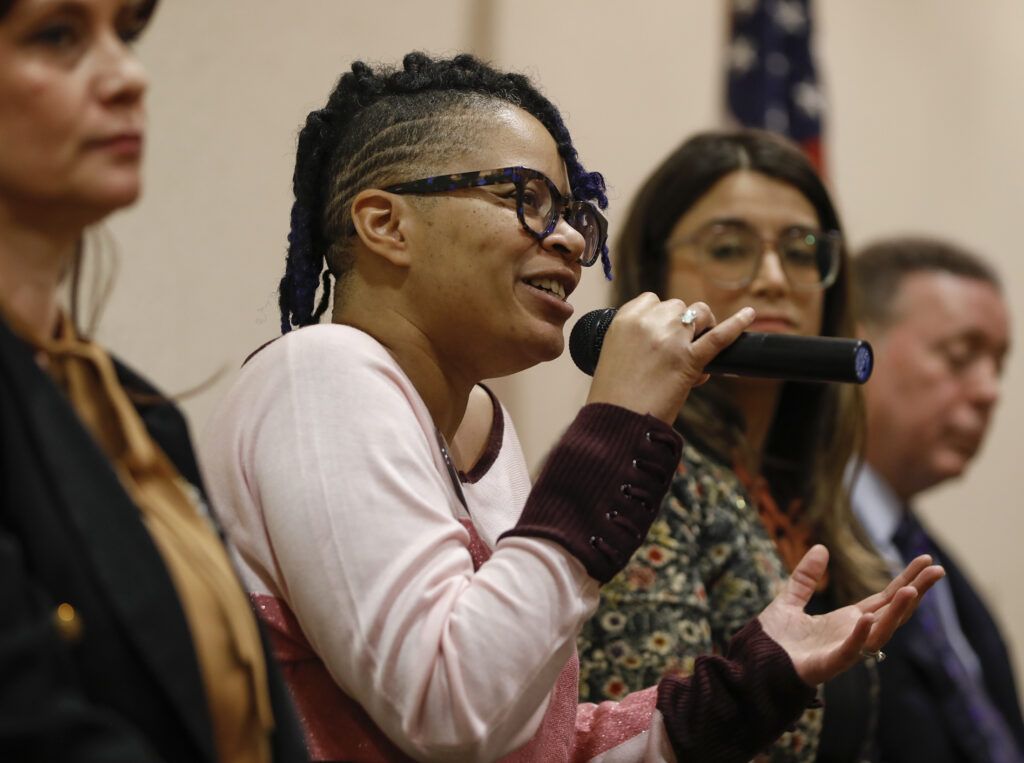
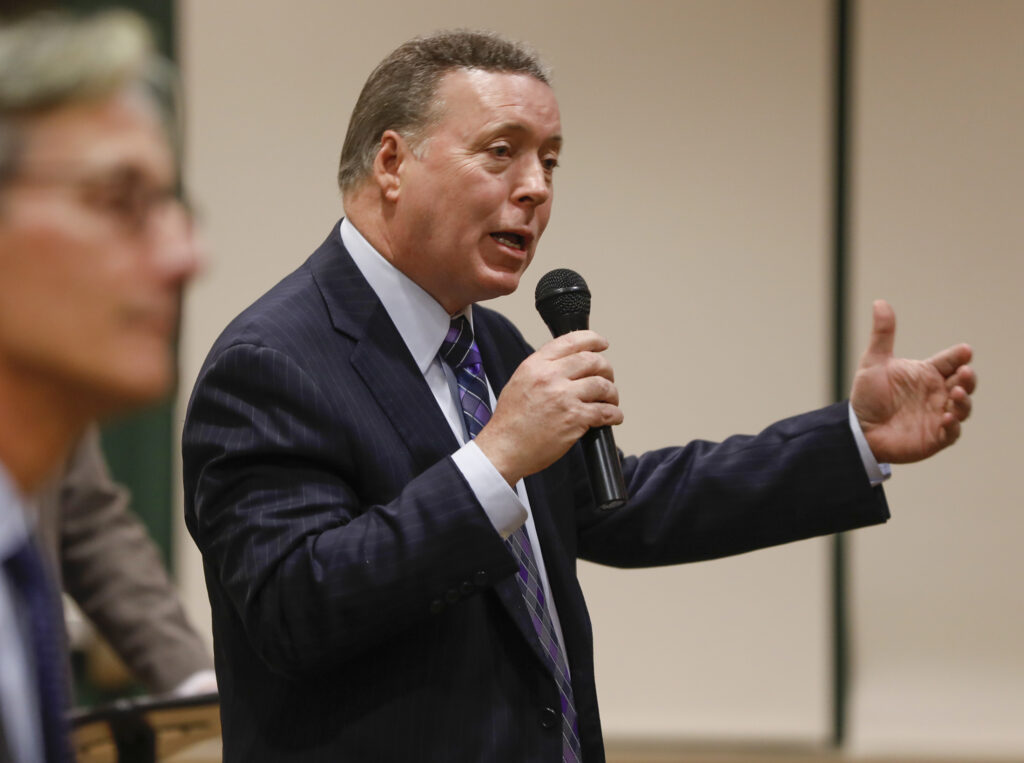
“As county executive, I want to create a housing first plan. That’s going to address everything from our homelessness crisis, to ensuring that seniors that can age in place in their home and community and everything in between,” she said. “We have to look at how we can develop homes in multi-use buildings around our transit corridors.”
Lamb said he takes issue with how past development deals have been negotiated, such as the region’s ultimately failed bid to draw a large Amazon office to the region, which included large tax breaks. He said money should instead be invested in communities themselves to upgrade infrastructure and housing, rather than corporations.
“That’s what’s going to really lead to having the kind of environment where businesses want to be here, and individuals want to be here,” said Lamb, who added that he plans to create a new program granting free admission for local high school students to community college. “It’s about investing in us, we’ve got to invest in who we are.”
Bennett said she would work to build coalitions and bridge the gap between the haves and have-nots, reeling off a list of issues impacted from transportation to health care to the environment.
“We have seen time and time again reports saying that we are very inequitable in our region,” she said.
Fawcett said he would like to invest in making Pittsburgh a “beacon of sustainability,” which could attract more people to the region. He plans to advocate for a riverfront park, a throwback to a similar proposal he made while serving on County Council, which could beautify the area near Point State Park.
Candidates also put forward different plans on how to deal with criminal justice issues and ongoing questions plaguing the Allegheny County Jail.
Fawcett, who has teamed up in the past with the American Civil Liberties Union and other nonprofits to bring lawsuits against the county, said he would push for increasing funding to the public defender and district attorney offices. He would also move to create a conviction integrity unit to make sure innocent people aren’t stuck behind bars.
“What we’re doing right now is cycling addicts and people with mental issues through the jail, and that shouldn’t be,” he said. “… There are two equal goals: keeping our streets safe and, as was stated, addressing gun violence.“
Multiple candidates pledged to install new leadership at the jail and also to attend meetings of the Jail Oversight Board — a requirement for which Fitzgerald has developed workarounds for years.
Several yes-or-no questions were asked of the candidates. They were unanimously in favor of a funding increase for the Community College of Allegheny County; working to get nonprofits to pay their “fair share” of taxes; including diversity, equity and inclusion criteria in the hiring of county staff members; considering a salary raise for members of County Council; and considering the consolidation of municipalities.
All supported limits to campaign contributions, except Weinstein. He has outraised some of the other candidates by 4-to-1 margins, largely drawing from a small number of corporate executives and labor unions making high-dollar donations.
“I believe this is a state issue,” Weinstein said. “If the governor and state Legislature pass laws for campaign finance reform, I can certainly support that.”
Jon, a copy editor and reporter at the Pittsburgh Post-Gazette, is currently on strike and working as a co-editor of the Pittsburgh Union Progress. Reach him at jmoss@unionprogress.com.

